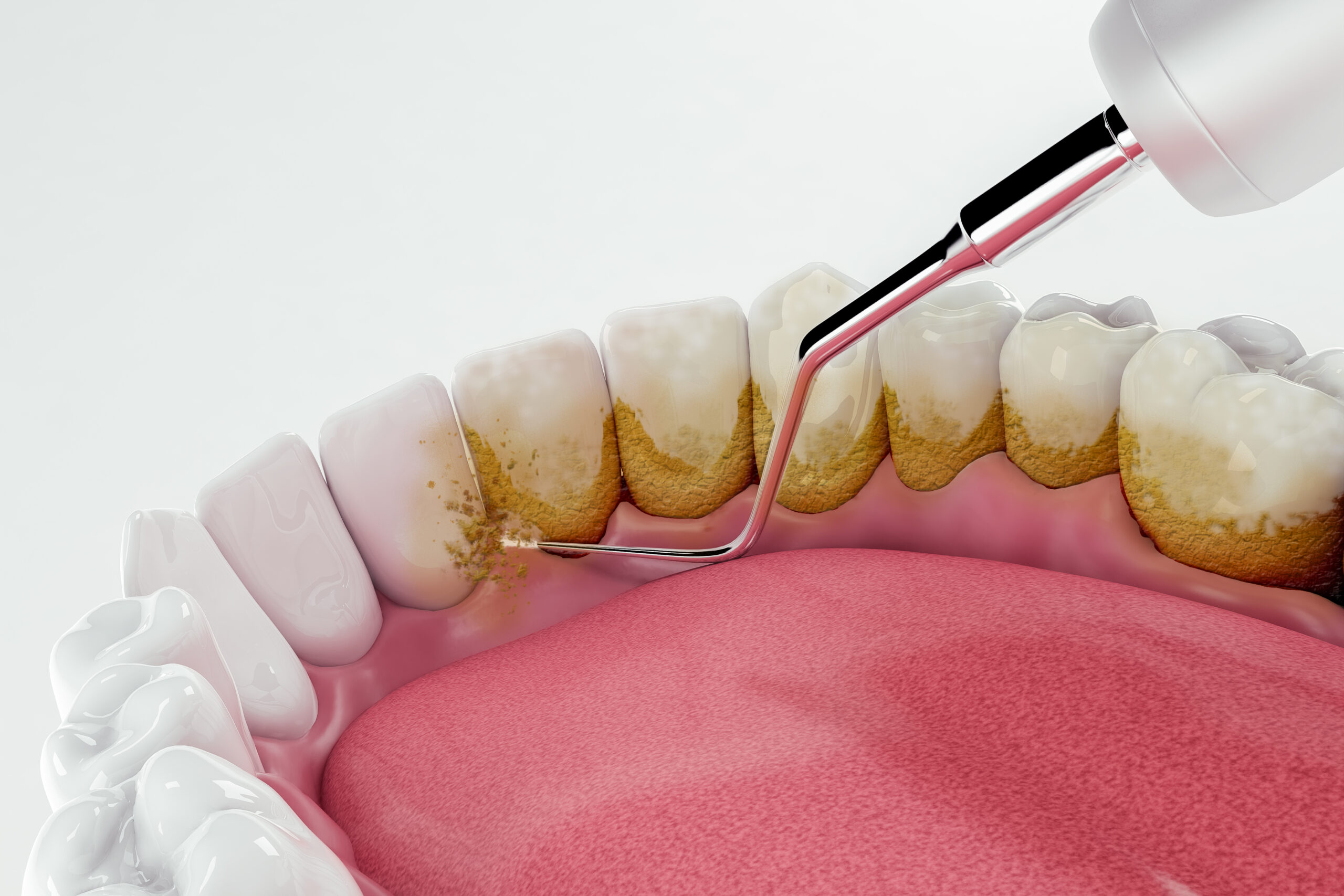Tartar Cleaning
Tartar cleaning, also known as tartar cleaning, is also known as detartraj. Tartar is the main cause
of gum diseases, bleeding gums and bad breath. When the plaque formed on the teeth is not cleaned, minerals and bacteria accumulate in the saliva of the person. Accumulated minerals and bacteria turn into dirty yellow substances on the teeth over time and cause discomfort. In standard tartar cleaning, the dentist cleans the tartar and plaque accumulated on the tooth
surface. Then, with a special polish, he polishes to remove tooth stains and polish them. He or she will advise you on how to brush and floss your teeth. Provides oral hygiene training.
Is tartar cleaning harmful?
First of all, cleaning in the mouth is absolutely beneficial as cleaning in every part of the body.
No findings have been detected in studies on the damages of tartar cleaning. Dental cleaning is a completely applicable and harmless method.This situation, which is recommended by experts, is a step taken for dental health and strengthening of teeth to be healthy. During tartar cleaning, there is no pain or pain, damage to the gums or abrasion of the teeth.

If the gums bleed more than expected during cleaning, it is a sign of gum sensitivity. In order to
better preserve these fillings in the teeth with fillings and to prevent the teeth from decaying from the inside, it is necessary to have regular scaling in 6-month periods. If tartar cleaning is not applied, it will damage the gums and dental tissue over time and then the bones.
What are the Causes of Tooth Stone Formation?
Dental calculus is literally caused by insufficient brushing of the teeth. It is important to brush
the teeth with the right technique. It is imperative to clean all surfaces of the teeth with round sweeping movements from the gums to the teeth, touching the brush 5-6 times on a single tooth.
Dental floss or interdental brush should be used to prevent tartar formation. The dental floss or interdental brush used is also necessary for general oral and dental hygiene. When choosing a brush, you need to choose a good brush. The toothbrush should definitely be selected according to the person. If you have gum sensitivity and are prone to gum problems, you should use a brush that will prevent gum problems. If you have tooth sensitivity, a brush should be selected for it. Generally, soft brushes are useful for both gum sensitivity and tooth sensitivity.
Is There Pain During Scaling?
Tartar cleaning is definitely not a painful procedure. It is a treatment that we easily apply even in
patients with fear of dentists and is easily tolerated by the patient and is applied in a short time in our clinic.
How can tartar formation be prevented?
Tartar can only be removed by dentists after tartar formation. If you brush your teeth correctly 2
times a day and floss regularly, you can prevent or delay tartar formation.
Does Gums Bleed?
Patients with edema and inflammation in their teeth may have some bleeding. But this is not at a
level to be feared. Cleaning does not continue after the process is finished. Within a week after tartar cleaning, the gums return to their pink healthy state.
Are Dental Floss and Interdental Brush Useful?
Dental floss and interdental brush are completely different products. There are types of dental
floss. The dental floss that should be used according to the tooth structure and frequency varies and provides the cleaning of the deposits formed between the teeth. However, it does not completely prevent the formation of tartar and there are points where it may be insufficient to remove deposits.
At the points where dental floss cannot provide benefit, it is necessary to perform oral care with an interdental brush. Cleaning the tartar and then increasing oral care will generally reduce problems. As long as these are done, tartar formation will decrease and your protection against gum disease will increase. Eliminating the cause is one of the most effective methods against the tartar problem and is absolutely very important.
How often should scaling be repeated?
Scaling can be done every 6 months when the dentist is checked. Depending on the patient’s own care performance and condition, it can be once a year or once every year and a half. However, this is not a subject that can be sure except for the dentist. Because even if the teeth are brushed at regular intervals, they may be brushed incorrectly.
When a wrong brushing technique is applied, even if it is regular, the dentist can easily understand this from the teeth and prevent it.

Therefore, it is very important to go to the dentist every 6 months. In some people, no tartar is formed even though they do not brush their teeth at all. However, there are also individuals who develop calculus despite regular oral and dental care. Therefore, some genetic and various external factors are also effective in calculus formation.
Does tartar cause bad breath?
Tartar does not cause bad breath directly, but the discomfort it causes can cause very severe bad
breath. In other words, if neglected, it indirectly causes bad breath. This is called halitosis. Halitosis is associated with gum problems and caries. The main factor in the formation of caries and gum problems is inadequate oral care.
What Should Be Considered After Scaling?
There are two common problems after scaling. One is the sensitivity of the teeth. There may be tooth sensitivity for two to three weeks. However, this sensitivity may not occur at all. The second is the increase in gingival bleeding. This side effect starts as an effect of tartar cleaning and heals very quickly after three days as the teeth are brushed.
It should not be forgotten that a healthy place in the human body can never bleed. If there is a serious progression in tartar formation, bacteria will spread to the gums and a healthy gum can never bleed because the gum is a cover.